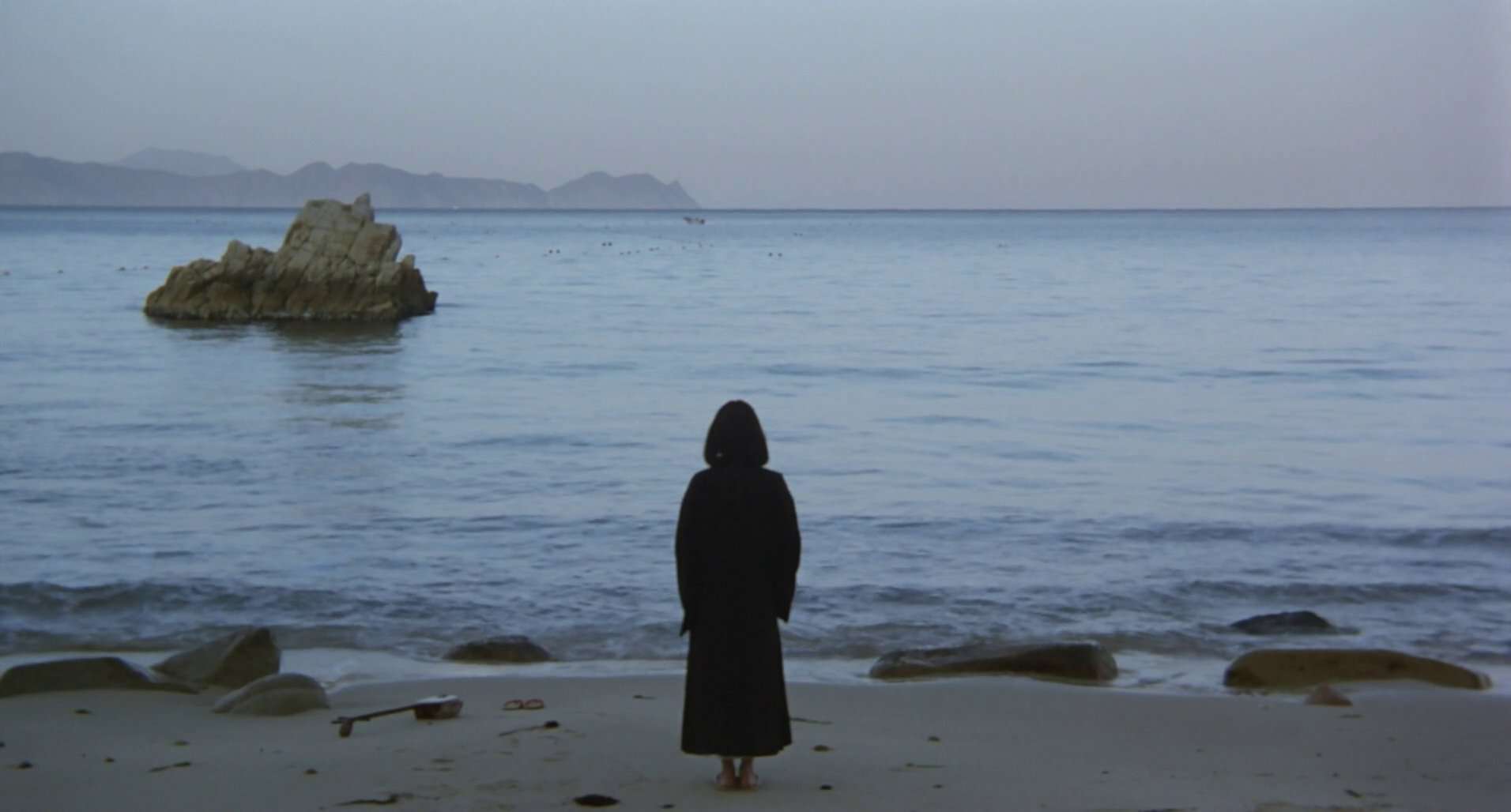A giant spaceship crashed from outer space onto the stormy coast of a small Filipino island. That's how the signal rock looks like. Like an Alien civilization, it also brought advanced technology to the remote piece of land, since the rock entails the only capability for the islanders to get cellphone reception.
“Signal Rock” is screening at San Diego Asian Film Festival (SDAFF)
For Intoy, the “everybody's darling” main character, this place is the only connection to his sister Vicky, who went to her husband's homeland – Finland. In hopes of a better life, she committed herself to a foreigner, got a baby girl and was able to send money back home to her family. But her relationship breaks apart and a child custody lawsuit is underway. Via the bumpy cell phone connection, Intoy and Vicky try to find ways of getting her and the baby back to the Philippines.
“Signal Rock”, directed by veteran filmmaker Chito S. Roño, is based on true events that took place in the 90s. The struggle of Intoy and his family is not an individual case, though. Even the movie represents certain patterns of how families try to “sell” their daughters to rich foreigners. Even though this seems like a common routine, the movie is not trying to accuse this behavior. Furthermore, it tries to find the reasons for it. The parents are suffering from this decision as well as the children. It often seems that the promise of wealth ends up in unhappiness.
Right from the start, the film establishes the cornerstones of the island community. Religion, family, and cohesion. Everybody is very close to each other. That also comes from the conditions that they live under. Most of the islanders are poor and doing day to day businesses for a living. They depend on each other.
The plot is built upon many levels of relationship drama and everything revolves around the aspects of poverty and money. All characters are longing for a better future. Some try to move away, some stay. Intoy, who takes care of his parents, is the one who keeps in touch with everybody. Played by Christian Bables, who already starred in Roño's horror movie “The Ghost Bride” (2017), the main character is characterized as a strong and good-willing part of the island community. Bables does an excellent job and is playing very convincingly.
The cast is added by Josef Nanding and Daria Ramirez as Intoy's parents, who present an unusual love-hate relationship. The whole acting is very professional. Even the younger roles next to Intoy, played by Francis Magundayao and Elora Españo are portrayed in a credible way. Looking at the previous productions of the cast, that may be no surprise at all, since all of the actors have much experience in the movie industry.
The cinematography by Neil Daza captures the beauty of the island and supports the ensembles of characters. He chooses different techniques, from drone-shots to handheld camera shooting to capture the variety of the cinematic story. The movie was shot in 15 days on the island of Samar and the shot on location vibe underlines the authentic feeling of the film.
Great cast, great story, great pictures. The only bump in the road could be found in the editing. Some scenes are rushing too fast. There is a stereotype that Asian movies ,in general, are a bit slower than your average Hollywood Blockbuster. “Signal Rock” does not repeat that stereotype. There is no time for long dramatic sequences or epic nature shots. The pace of the movie is therefore surprising. Everything focuses on the story and Roño avoids any extra metaphorical space, which could possibly drag out the whole film.
Coming to terms, “Signal Rock” is a refreshing, but also a dark drama about the Filipino life. It shows the ups and downs of rural communities and gives a decent, authentic insight into current problems like poverty and finding ways out of it. Since “Signal Rock” was selected from the Philippines as contender for the foreign-language section of the upcoming Academy Awards, it will be interesting to see how the film will do in the long run.
















